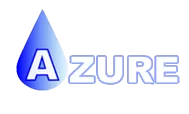
Contents
Understanding BlueTEC Technology
BlueTEC is a proprietary emissions control technology developed by Mercedes-Benz. It’s designed to reduce nitrogen oxide (NOx) emissions, which are a significant contributor to air pollution from diesel engines.

What BlueTEC Really Means
At its core, BlueTEC refers to a combination of technologies used in Mercedes-Benz diesel engines to meet strict emission standards. These include selective catalytic reduction (SCR), diesel particulate filters (DPF), and oxidation catalysts—all of which work together to treat exhaust gases and reduce emissions. BlueTEC is not a fluid or additive itself, but a system that depends on one: AdBlue.
How BlueTEC Uses AdBlue
BlueTEC systems rely on AdBlue, a urea-based diesel exhaust fluid (DEF), to convert harmful nitrogen oxide into nitrogen and water vapor. The vehicle injects AdBlue into the exhaust stream, where it reacts in the SCR catalyst to neutralize pollutants. Without AdBlue, the BlueTEC system cannot function properly and the vehicle may lose performance or enter limp mode.
What Is AdBlue and How Does It Work?
AdBlue, also known as diesel exhaust fluid, plays a critical role in the operation of BlueTEC systems and other SCR-based emission reduction technologies.
The Chemical Composition of AdBlue
AdBlue is a high-purity solution made up of 32.5% urea and 67.5% deionized water. It’s not a fuel additive and doesn’t go into the engine—it’s stored in a separate tank and only used in the exhaust system. Its sole purpose is to aid in breaking down harmful nitrogen oxide gases.
AdBlue in Everyday Use
Drivers must periodically refill the AdBlue tank—usually during routine service or when alerted by dashboard notifications. Failing to keep the tank filled can result in reduced engine performance or prevent the vehicle from starting, particularly in vehicles equipped with BlueTEC systems.
Key Differences Between BlueTEC and AdBlue
Though they’re closely related, BlueTEC and AdBlue serve different purposes in diesel emission systems.

BlueTEC is the System, AdBlue is the Solution
BlueTEC refers to the overall emission-reducing system in a vehicle, while AdBlue is the liquid that makes part of that system work. You can think of BlueTEC as the “hardware” and “software” of emission control, and AdBlue as the consumable input it needs to function effectively.
Brand-Specific vs. Industry-Wide Use
BlueTEC is unique to Mercedes-Benz, though other manufacturers use similar SCR systems. AdBlue, on the other hand, is a standard diesel exhaust fluid used in a wide range of vehicles, including those made by BMW, Audi, Ford, and heavy-duty truck manufacturers.
Maintenance Tips for BlueTEC Systems
Maintaining your BlueTEC system involves more than just topping off AdBlue. Here are key practices to ensure optimal performance and longevity.
Monitor DEF Levels and Alerts
Keep an eye on dashboard alerts indicating low AdBlue levels. Refill promptly when prompted to avoid performance issues or the vehicle shutting down completely. It’s also wise to keep a backup bottle of AdBlue in the trunk.
Use High-Quality AdBlue from Trusted Sources
Not all AdBlue products are created equal. Using low-quality or contaminated DEF can damage your BlueTEC system. Purchase your diesel exhaust fluid from reliable suppliers like Azure Chemical, which offers pure, ISO-certified DEF products.
Environmental Impact and Compliance
Both BlueTEC and AdBlue are part of a global push toward cleaner diesel technology.

Meeting Emissions Regulations
BlueTEC-equipped vehicles with SCR systems that use AdBlue are designed to meet Euro 6 and U.S. Tier 2 Bin 5 standards. These technologies help automakers comply with regulations and allow consumers to operate diesel vehicles in low-emission zones.
Reducing Environmental Harm
By reducing NOx emissions by up to 90%, BlueTEC systems using AdBlue significantly cut down on smog and health-related risks from diesel exhaust. This technology is key to making diesel engines more eco-friendly and future-compliant.
Two Additional Insights Diesel Owners Should Know
Modern diesel systems are complex. Here are two extra insights that every driver of a BlueTEC vehicle should consider.
What Happens When AdBlue Runs Out?
Most modern diesel vehicles, especially those with BlueTEC systems, are programmed to limit performance or prevent engine restarts once AdBlue levels drop below a minimum threshold. This ensures that vehicles remain compliant with emissions laws. Always refill before the tank empties completely.
Storing and Handling AdBlue Properly
AdBlue should be stored in a cool, dry place away from direct sunlight. Exposure to extreme heat or contamination can degrade the quality of the fluid and affect the performance of your BlueTEC system. Using clean funnels or dispensing equipment is also recommended.
FAQs
Is BlueTEC just another name for AdBlue?
No, BlueTEC is the emissions system, while AdBlue is the diesel exhaust fluid it uses.
Can I use any DEF in a BlueTEC vehicle?
You should use high-purity AdBlue from trusted providers like Azure Chemical to avoid system damage.
What happens if I don’t refill AdBlue?
Your vehicle may go into reduced performance mode or not start at all if AdBlue levels are too low.
How often should I refill AdBlue in a BlueTEC vehicle?
Most drivers need a refill every 5,000 to 10,000 miles, depending on driving habits and vehicle model.
Is AdBlue harmful to the environment?
No. In fact, it reduces harmful NOx emissions, making diesel engines more eco-friendly.
Conclusion
So, is BlueTEC the same as AdBlue? Not exactly. BlueTEC is the emissions control technology developed by Mercedes-Benz, while AdBlue is the diesel exhaust fluid that helps it operate effectively. If you drive a BlueTEC-equipped vehicle, using the right AdBlue is critical for both compliance and performance. Azure Chemical provides premium-quality AdBlue you can trust—manufactured to meet ISO standards and designed for peak compatibility with today’s advanced diesel systems. Keep your vehicle clean, compliant, and running smoothly—shop AdBlue at Azure Chemical today.










